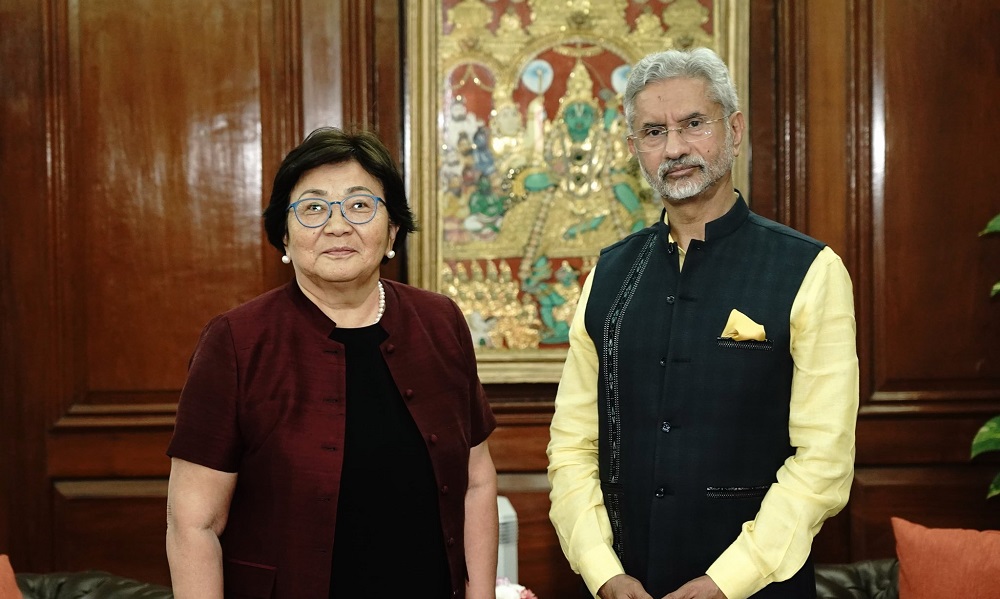Latest News
40% of Afghan media have closed, 80% of women journalists lost their jobs

A survey by Reporters Without Borders (RSF) and the Afghan Independent Journalists Association (AIJA) has found a radical change in the Afghan media landscape since the takeover by the Islamic Emirate of Afghanistan (IEA).
According to a report on the RSF website, a total of 231 media outlets have closed and more than 6,400 journalists have lost their jobs since 15 August.
Women journalists have been hit hardest, with four out of five no longer working, the report stated.
More than four out of every ten media outlets have disappeared and 60% of journalists and media employees are no longer able to work.
According to the RSF report, of the 543 media outlets tallied in Afghanistan at the start of the summer, only 312 were still operating at the end of November.
This means that 43% of Afghan media outlets disappeared in the space of three months.
The central Kabul region, which had more media than anywhere else, has not been spared. It has lost more than one of every two media outlets (51%). Of the 148 tallied prior to 15 August, only 72 are still operating.
RSF reported that the closure or reduction in the activities of media outlets has had a major impact on employment in the media sector. Of the 10,790 people working in the Afghan media (8,290 men and 2,490 women) at the start of August, only 4,360 (3,950 men and 410 women) – or four out of every ten media workers – were still working when this survey was carried out.
RSF attributed this change in part to new regulations issued by the IEA.
The rules require journalists to tell information and culture ministry officials what they would like to cover, get their permission to go ahead and finally inform them about the results of their reporting in order to be able to publish.
“There is an urgent need to rein in the spiral leading inevitably to the disappearance of Afghan media and to ensure that respect for press freedom is a priority,” said Reza Moini, the head of RSF’s Iran-Afghanistan desk.
“Journalists’ safety, the fate of women journalists, media legislation and the right of access to news and information are all crucial issues that the authorities must address without delay. Without a free press capable of exposing bad governance’s failings, no one will be able to claim that they are combatting famine, poverty, corruption, drug trafficking and the other scourges that afflict Afghanistan and prevent a lasting peace.”
IEA spokesman Zabihullah Mujahid told RSF that the Islamic Emirate of Afghanistan supports “freedom for the media in the defined framework for preserving the country’s higher interests, with respect for the Sharia and Islam.” He also said that the government wanted to “help those media that are operating to continue to do so, and help the others to find solutions so that they can resume operating.”
Aside from new rules, media owners have to cope with new economic constraints. Many media outlets were receiving national and international funding that ended when the IEA seized control.
“These subsidies, which came above all from countries that had a military presence in Afghanistan and which had an interest in providing them, have now ended,” said Mujahid.
Recognizing the disappearance of many media outlets, Mujahid noted that many media “executives and managers had fled the country.”
This had contributed to the “collapse” of their media outlets, he said.
Latest News
IEA urges World Bank to resume work on 7,000 incomplete projects

Officials at the Ministry of Rural Rehabilitation and Development (MRRD) say 7,000 incomplete projects of the World Bank are at risk of destruction in Afghanistan. They call on the World Bank to resume the work of these projects.
According to them, discussions have been held with the World Bank about these projects, but there has been no result yet.
“7,000 incomplete projects are being destroyed, and if the work is not started, these projects will be destroyed. We ask the World Bank to resume the work of these projects as soon as possible,” said Noorul Hadi Adel, the spokesperson of MRRD.
Meanwhile, members of the private sector also ask international institutions to resume their work in Afghanistan.
According to the officials of this sector, with the start of these projects, job opportunities will be provided for thousands of people in the country.
“These projects create employment for our people and the country will grow a lot,” said Mirwais Hajizadeh, a member of the private sector.
However, economic experts stated if the work of these projects does not start soon, they will be destroyed and the investments made in them will be wasted.
Latest News
Ten people killed by floods in Helmand

Ten people have been killed and six others injured by floods in Helmand province in the past week, local officials said on Friday.
According to officials, seven of those were members of the same family, and they were killed in Kajaki district last night.
“Most of the people moved from vulnerable areas to high lands and mountains, and thanks Allah the number of casualties is low,” Sher Mohammad Vahdat, the head of information of the Directorate of Information and Culture in Helmand, said adding rescue teams and security forces have been dispatched to help people.
It is said that the telecommunication system has also been disrupted due to the effect of floods in Kajaki district. Floods have also destroyed thousands of acres of agricultural land.
Latest News
UN envoy meets Indian foreign minister to discuss Afghanistan

Roza Otunbayeva, the UN Secretary General’s Special Representative for Afghanistan, met with the Indian Foreign Minister Subrahmanyam Jaishankar in New Delhi and discussed issues related to Afghanistan, it was announced on Thursday.
During the meeting, Otunbayeva thanked India for “its critical humanitarian support and longstanding friendship for the Afghan people” and discussed the importance of regional and international cooperation to address prevailing challenges in Afghanistan, UNAMA said on X.
Jaishankar also said on X that the sides exchanged views on the current situation in Afghanistan.
“Underlined that India has provided wheat, medicines, pesticides and school supplies. Appreciate the role of UN agencies as partners in these endeavors,” he said.
-

 Sport4 days ago
Sport4 days agoACL fever grows as fixtures finalized
-

 World4 days ago
World4 days agoUS will not take part in any Israeli retaliatory action against Iran
-

 Latest News4 days ago
Latest News4 days agoOver 50 people dead in traffic accidents over Eid
-

 Latest News4 days ago
Latest News4 days agoUS identifies Kabul airport suicide bomber
-

 Latest News4 days ago
Latest News4 days agoGood rains enable DABS to increase power production in Kabul
-

 Business4 days ago
Business4 days agoAfghanistan-Kazakhstan chamber of commerce opens in Herat
-

 World3 days ago
World3 days agoIsraeli military vows response to Iran attack as calls for restraint mount
-

 Latest News3 days ago
Latest News3 days agoPakistani police give Afghans in Balochistan one day to leave
























